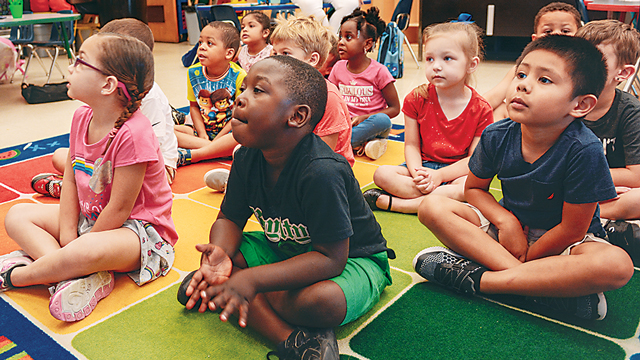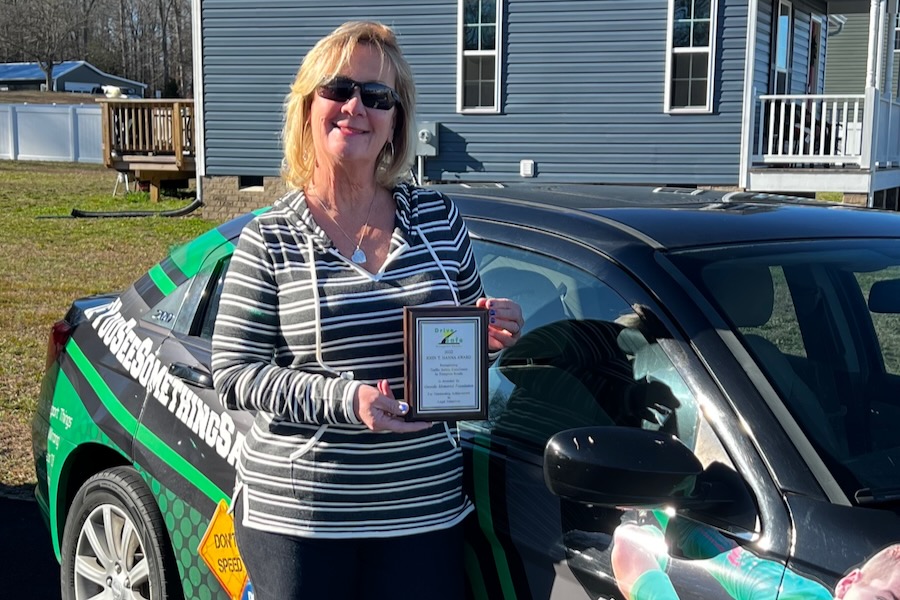When Bonnie Soto was told she was having twins in 2014, she suddenly found herself confronting a revised family budget that didn’t fit with her original plans. She had figured that after her baby was born, she would find childcare and return to her job. But when she multiplied childcare costs by two – in fact, when she started multiplying everything by two – it was hard to make the math work.
And so Lilli and Leo’s mother became a stay-at-home parent.
“With having twins, we really couldn’t afford any kind of childcare, much less preschool,” Bonnie said. “It was cheaper for me to stay at home with them than it would be for me to go to work and put all of my paycheck toward the cost of preschool.”
Even without twins, the story is a familiar one around Richmond. A study published last year by the Economic Policy Institute ranked Virginia as the tenth most expensive state in the country for childcare. The average cost for infant care tops $14,000 per year, with a typical preschool for 4-year-olds costing more than $900 a month.
Parents like Bonnie do their best to provide quality early education for their children. But despite caregivers’ best efforts, in order for children to be ready for kindergarten – a critical milestone in a child’s development – they may need to be exposed to a classroom environment. Educators say preschool helps young children socialize, learn to obey rules, and get familiar with structures for learning. It’s an essential foundation on which to build a lifetime of learning.
But in the Greater Richmond region, one in seven students starts kindergarten without the skills necessary to thrive in elementary school.
To address that disparity, United Way of Greater Richmond & Petersburg launched a pilot program last year designed to give rising kindergartners a chance to experience class with their 5-year-old peers. Last year’s first-ever Kindergarten Countdown Camp in Dinwiddie was so successful, United Way is expanding the program this summer to five classrooms across Powhatan, Goochland, and Dinwiddie.
The camps last three to four weeks, but Tia Wilson, who is a kindergarten teacher with Dinwiddie County Public Schools, says that’s plenty of time to assess each student’s needs. “Each child comes in needing something different from their camp experience,” she says. “As a teacher, we figure out what that is pretty quickly.”
All the camps are taught by licensed teachers, and classes focus on basic kindergarten skills like recognizing letters, numbers, and shapes as well as social skills like riding a school bus, standing in line, or raising hands before asking a question.
Each camper is given two kindergarten readiness assessments, one at the beginning of camp and one at the end. The assessments measure both readiness skills and social-emotional skills. The expectation is that students will be at the in-progress level on these skills by the time they start kindergarten in the fall.
Bonnie could tell that this unique camp experience made a big difference for her twins, Lilli and Leo.
“This program helped my children get used to being away from me,” said Bonnie. “It exposed them to other kids and other adults with authority. I feel like it really helped them understand what to expect when they start kindergarten.”
And the pre- and post-assessments revealed the same conclusion. By the end of camp, Lilli and Leo had shown significant gains in both the academic and social skills needed to succeed in kindergarten.
While at Kindergarten Countdown Camp, students receive breakfast and lunch, a new book each week, passes to a local museum, and a backpack full of school supplies.
United Way’s Kindergarten Countdown Camp is specifically designed for young children with little or no preschool experience. The process for selecting participants will vary by school, but districts use data from kindergarten registration to inform and help with participant selection.
Whether or not a student is identified to participate in this unique program, families can take steps this summer to help their preschooler get ready for kindergarten. As the father of twins, I recommend visiting local story times at libraries and museums (many of which are free), practicing letters, numbers, and scissor skills, and playing simple board games with children.
Photo: courtesy United Way of Greater Richmond & Petersburg




